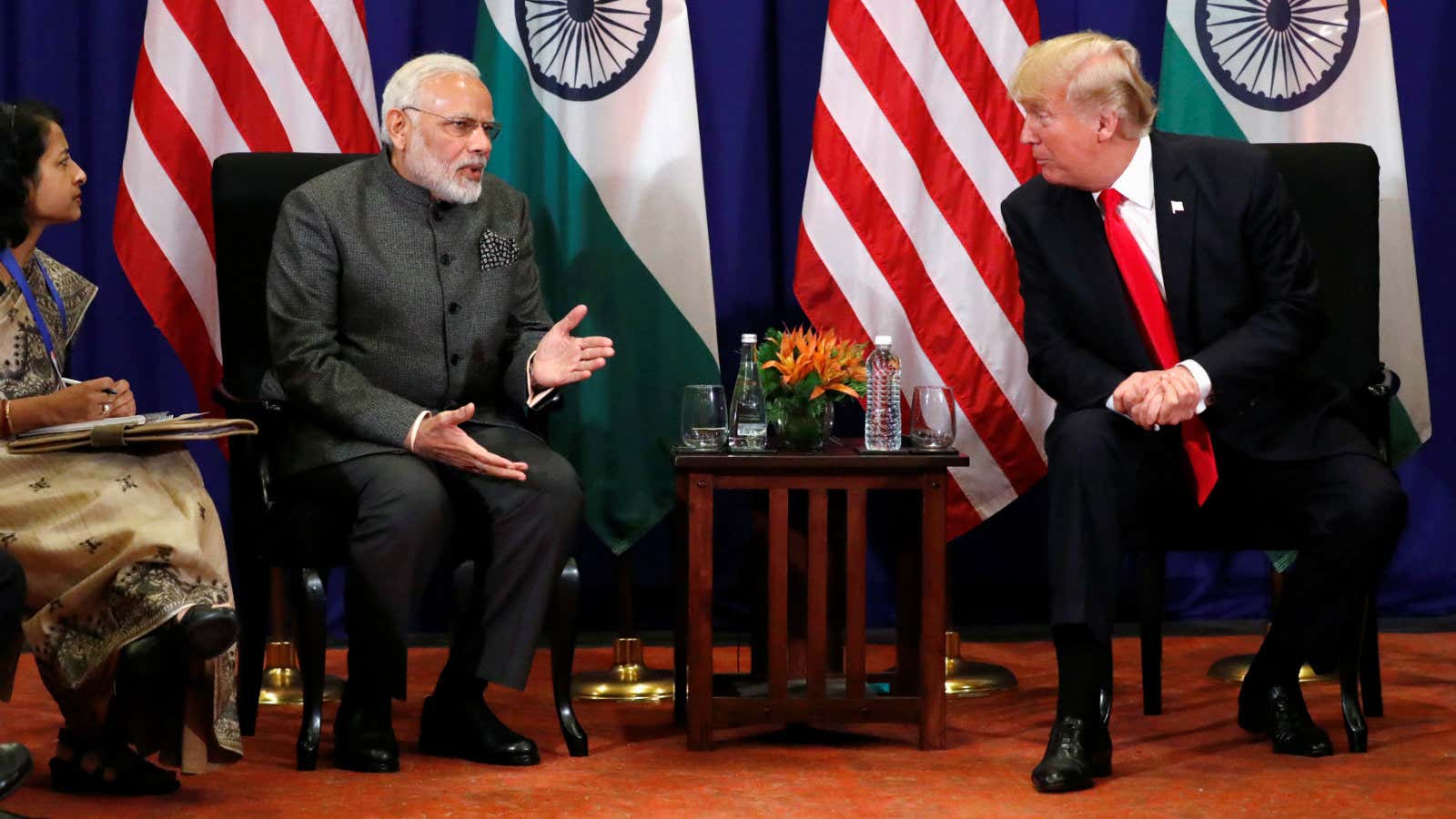The ongoing trade war between the US and China has caught global attention. However, US president Donald Trump’s trade tantrums have put the world’s largest economy in conflict with other countries, too, like Canada and those in Europe. And some of them have even retaliated in kind, including India.
On June 16, India’s ministry for commerce reportedly notified the World Trade Organisation (WTO) that it would hike tariffs on 30 imported American goods, by up to 50% over the current duties. These include motorcycles, heavy machinery, chocolates, almonds, and shrimps.
This hike is in response to the US increasing the duty on aluminium and steel imported from India in March this year. India’s reprisal follows the US government’s reported snubbing of a request from India to be exempted from the higher tariffs.
“Our estimates place a combined $240 million loss for India on account of Mr. Trump’s steel, aluminium tariffs and we felt a reciprocal tariff of a similar amount on US imports would be fair,” a senior commerce ministry official told the Business Standard newspaper.
Trump’s trade policy is based on his “America first” rhetoric aimed at boosting the competitiveness of the manufacturing industries and jobs in the US. As the world’s second-biggest consumer of steel and the third-biggest of aluminium, the US has a huge trade deficit with most exporting countries.
A trade deficit is the amount by which a country’s imports exceed the exports. India ranks ninth on that list.
America’s trade deficit with India has, however, come down a bit lately. India primarily sells pearls, pharmaceuticals, chemicals, and textiles to the US, and imports nuclear reactors, machinery, mineral fuels, and oil among other products.
India’s letter to the WTO has come amidst similar moves from the European Union and China. US consumers will now have to pay more for imported goods from Europe like whisky, denim, and motorcycles. This come after the Trump administration bumped up duties on metal bought from across the Atlantic.
On Saturday (June 16), Beijing announced higher duties on agricultural products, automobiles, and seafood imported from the US. Higher tariffs on another 114 items, including chemicals, medical equipment, and energy products, will come into effect later.
